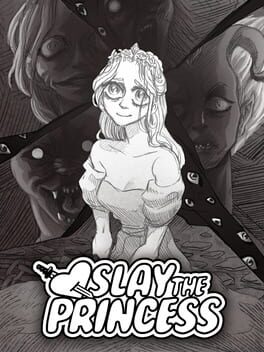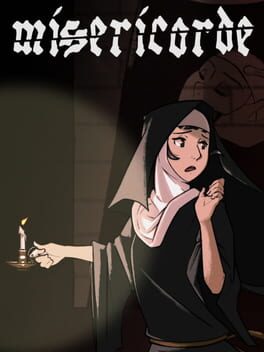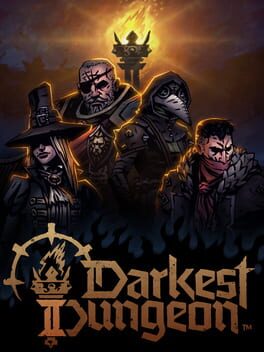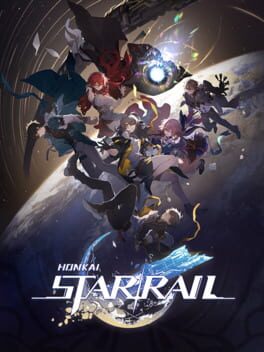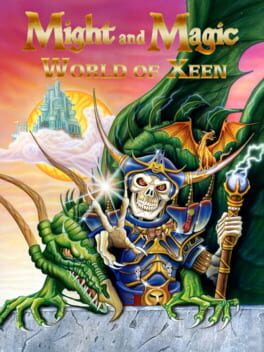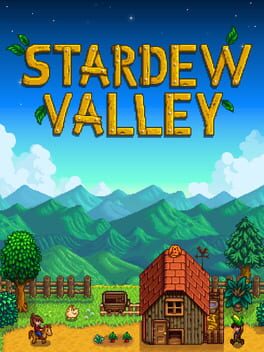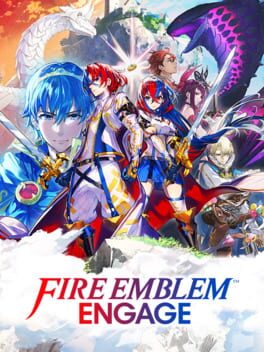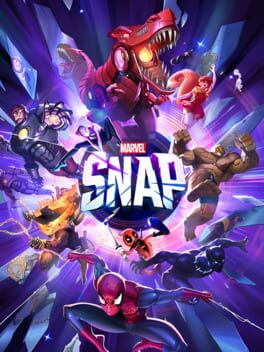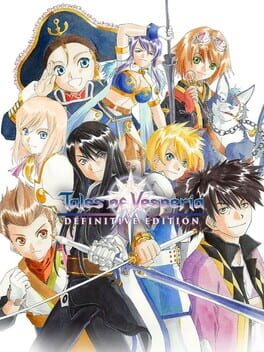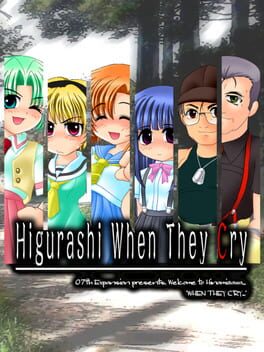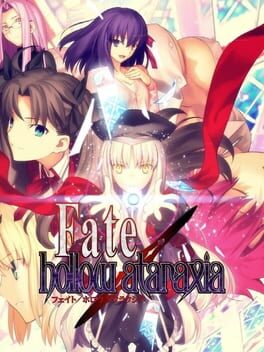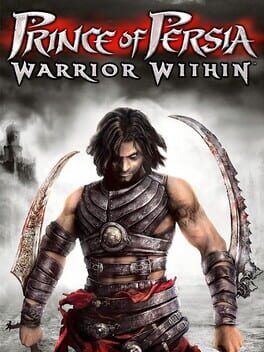unhaunting
2023
2021
managed to drag myself all the way to the end of this one, which i guess means i must have liked something about it. it was actually a lot! i think it's a complete improvement on dd1 mechanically and writing-wise, and i already liked that game -- although every dlc they released made it worse and worse.
i really like how the mechanics of uncertainty, taking chances and frequently accepting 50/50 odds, something you normally don't want to do in strategy games, mesh with the theme of hope vs despair in this one; i like that the uncertainty is mostly moved away from hit chances and onto stuff like skill procs, trinket procs, relationships, etc. the relationships themselves are a fantastic addition and can really make runs more interesting and memorable. the hero shrine stories are a really cool addition too.
unfortunately i am so fucking done with having to take 20 hours to unlock the ability to fully play the game. you don't have to get every unlock, or even most, to win confession 5 -- but there are some skills and items that obviously make a huge difference, and until you unlock them you're not even allowed to know what they are.
i hate unlock treadmills so much now, dude. they never should have been allowed to get this bad.
i really like how the mechanics of uncertainty, taking chances and frequently accepting 50/50 odds, something you normally don't want to do in strategy games, mesh with the theme of hope vs despair in this one; i like that the uncertainty is mostly moved away from hit chances and onto stuff like skill procs, trinket procs, relationships, etc. the relationships themselves are a fantastic addition and can really make runs more interesting and memorable. the hero shrine stories are a really cool addition too.
unfortunately i am so fucking done with having to take 20 hours to unlock the ability to fully play the game. you don't have to get every unlock, or even most, to win confession 5 -- but there are some skills and items that obviously make a huge difference, and until you unlock them you're not even allowed to know what they are.
i hate unlock treadmills so much now, dude. they never should have been allowed to get this bad.
2023
hoyoverse have one and only one thing they ever want to be doing: the epic shounen anime dramatic showdown scene. all the other writing building up to the big moment is frustrating -- characters launch into excessive monologues, overshare their life stories, do not react to critical new information or ask followup questions; the main character has an unusually high proportion of weird asshole dialogue lines in minor sidequests; there are problems with the lorebooks that would take a longer writeup to explain. this all looks like a bunch of scattershot complaints, but i really do think there is a deep and singular issue here with what the writing team think they're doing as opposed to what's actually happening on screen; i just haven't fully formulated the exact description of the problem yet.
on top of all this, it's a gacha single player game, and the wretchedly slow character progression systems that come with this are widely known. i'm used to these by now, but that doesn't mean it's good.
the dramatic moments are cool though! i'll have a good time with this for a bit -- at least the turn based poor-man's-smt battle system is something i enjoy, and it's fun to beat up goons in space sometimes -- but, especially after some experience with genshin, it's clear that this stuff is just not really for me.
EDIT: you know what, i'm bumping this up half a star cos some of the writing is winning me over. the text chats in particular are high level.
on top of all this, it's a gacha single player game, and the wretchedly slow character progression systems that come with this are widely known. i'm used to these by now, but that doesn't mean it's good.
the dramatic moments are cool though! i'll have a good time with this for a bit -- at least the turn based poor-man's-smt battle system is something i enjoy, and it's fun to beat up goons in space sometimes -- but, especially after some experience with genshin, it's clear that this stuff is just not really for me.
EDIT: you know what, i'm bumping this up half a star cos some of the writing is winning me over. the text chats in particular are high level.
this whole series is like the guy who wears a star trek costume to the renaissance faire (as opposed to wizardry, which is like the guy who wears a wizard hat to a linux convention). personally i find that kind of charming.
that said, xeen is probably where m&m peaked for me, and it's still not as interesting as wizardry or etrian or old school roguelikes. probably because it's very easy. it might be a good entry point to dungeon crawlers, but who's getting a DOS game for that purpose today?
that said, xeen is probably where m&m peaked for me, and it's still not as interesting as wizardry or etrian or old school roguelikes. probably because it's very easy. it might be a good entry point to dungeon crawlers, but who's getting a DOS game for that purpose today?
2009
This review contains spoilers
okay, having actually replayed this recently, i'm throwing out my previous review and bumping the score way up because of what i noticed the first time playing it, didn't note down anywhere and then sort of forgot.
all of ff13's impact, and whether you will love it or not, hinges on one moment: when you round the corner just before oerba and the windmills come into view. oerba is packed with these little interactables that say, in essence, "people lived here once," i think because they were worried people wouldn't pick up on the theme, but for me the windmills sealed the deal before a word was said. like any ruin, they are both part of the landscape and very obviously artificial, but most importantly, unlike the cracked asphalt and rusting girders, they are still moving; something left there who knows how long ago, still animated by a force wholly independent of its creator. i probably don't have to point this out if you're reading this, but this is also plainly true of the fal'cie machine gods; with two exceptions i can think of all of them are, essentially, intelligent infrastructure.
thematically, everything in oerba comes together so well without a word needing to be said that it left me speechless on my first playthrough. why do you think they left fixing vanille's little toy robot in as a sidequest in a game otherwise almost completely devoid of sidequests? why does cocoon loom so large in the sky over oerba (aside from communicating that it's equally prominent in the party's thoughts), and why does the remnant of the railway, which you must traverse, point directly towards it, if not to say something about constructed environments and the continuity of human endeavour? and who else is there to bar your way and try to create a discontinuity than the fucking pope!
13 isn't a perfect story: it has moments of dissonance that even i would have tons of trouble trying to excuse, they made poor sazh carry more comic relief than he should, and i don't think all of the character arcs are equally strong or satisfying. but this idea of trace, of the barely perceptible thread of connection and causation running through history and society, and of things existing long after they've served their purpose, but still reflecting that there was someone in time immemorial who had a purpose in making them -- is realized better here than anywhere in the series. to me, it's the nier of final fantasies.
all of ff13's impact, and whether you will love it or not, hinges on one moment: when you round the corner just before oerba and the windmills come into view. oerba is packed with these little interactables that say, in essence, "people lived here once," i think because they were worried people wouldn't pick up on the theme, but for me the windmills sealed the deal before a word was said. like any ruin, they are both part of the landscape and very obviously artificial, but most importantly, unlike the cracked asphalt and rusting girders, they are still moving; something left there who knows how long ago, still animated by a force wholly independent of its creator. i probably don't have to point this out if you're reading this, but this is also plainly true of the fal'cie machine gods; with two exceptions i can think of all of them are, essentially, intelligent infrastructure.
thematically, everything in oerba comes together so well without a word needing to be said that it left me speechless on my first playthrough. why do you think they left fixing vanille's little toy robot in as a sidequest in a game otherwise almost completely devoid of sidequests? why does cocoon loom so large in the sky over oerba (aside from communicating that it's equally prominent in the party's thoughts), and why does the remnant of the railway, which you must traverse, point directly towards it, if not to say something about constructed environments and the continuity of human endeavour? and who else is there to bar your way and try to create a discontinuity than the fucking pope!
13 isn't a perfect story: it has moments of dissonance that even i would have tons of trouble trying to excuse, they made poor sazh carry more comic relief than he should, and i don't think all of the character arcs are equally strong or satisfying. but this idea of trace, of the barely perceptible thread of connection and causation running through history and society, and of things existing long after they've served their purpose, but still reflecting that there was someone in time immemorial who had a purpose in making them -- is realized better here than anywhere in the series. to me, it's the nier of final fantasies.
2016
it's fun enough for what it is but for many years now i have had a whole thesis about how the notions of "cozy" and "wholesome" that have become attached to this betray a weird ideology and mythology considering the actual game is mostly about starting a nuclear family and optimizing the efficiency of your small business
2023
somehow still better written than fates?
it's fun if you already like FE gameplay and/or enjoy visual overstimulation but the connection between this and fe heroes (the gacha game) is palpable: these characters are products, the story is content, the message, more than anything it purports to say about the power of friendship, is brand loyalty. a deeply soulless and unchallenging game and a complete disappointment after 3h.
would still maybe have been a 2.5/5 if the maps were a little bit more interesting on average, because it's pretty strong mechanically on maddening, especially compared to the drudgery of bowrange vantage poison strike archers of 3h; but the rumors of this having "great gameplay" were greatly exaggerated. chapter 10/11 and the ike paralogue were the high points for me.
edit: im bumping this up to a 50% because the last 3 maps were genuinely good
it's fun if you already like FE gameplay and/or enjoy visual overstimulation but the connection between this and fe heroes (the gacha game) is palpable: these characters are products, the story is content, the message, more than anything it purports to say about the power of friendship, is brand loyalty. a deeply soulless and unchallenging game and a complete disappointment after 3h.
would still maybe have been a 2.5/5 if the maps were a little bit more interesting on average, because it's pretty strong mechanically on maddening, especially compared to the drudgery of bowrange vantage poison strike archers of 3h; but the rumors of this having "great gameplay" were greatly exaggerated. chapter 10/11 and the ike paralogue were the high points for me.
edit: im bumping this up to a 50% because the last 3 maps were genuinely good
This review contains spoilers
technically, as i write this, i'm still in the lategame sidequest roundup phase, so i'm not gonna be really "done" for a while yet. however, i doubt my opinion of xeno 3 is going to change much before it's done, and my opinion is: i'm surprised how much i ended up liking it, especially since 1 really didn't blow me away, 2 was a complete skip and x was nothing.
there were so many points where i acutely felt my interest in the game waning: the main plot, while fun and thematically interesting, is quite by the numbers; the cavalcade of cackling cartoon villains, initially charming when there's just one or two, quickly becomes excessive, and the combat, which admittedly has gotten a lot more fun since xeno 1, is still very basic and amounts to a lot of sitting through animations. plus, sena, as much as i like her, got robbed of a satisfying and well-paced character arc. if the game's strengths were just a little bit weaker, all of this would definitely have built up to me losing interest and dropping it like a rock.
xenoblade 3 gets carried incredibly, unbelievably hard by its character writing, its english translation and the VA's performances. you'll be hard-pressed to find even a nameless NPC bit part that's anything less than very good, while the main cast's performances are simply some of the best i've ever heard, and bring the characters to the next level (e u n i e !!!!!). the translation does have some small bits that jumped out at me as imperfect -- inevitable in a project of this scale -- but by and large it's fantastically high quality, especially when it comes to conveying natural-sounding en dialogue without just mechanically reproducing jp figures and patterns of speech.
something that i think 3 succeeds at that the series has, up until now, been failing at is how thematically cohesive it is: for dozens of hours, xeno 3 manages to almost constantly be about death, grief, letting go, and what we leave behind; and yet, to me, it never really gets stale thanks to almost every quest and character introducing some new perspective on these concepts, and the main party being an unmitigated delight to spend time with. some stretches are in your face, some are subtle, some serious, some goofy, and some -- the requisite reproductive futurism episode and the eternal xeno series boy/girl couple finding each other across lifetimes and centuries that stands for the vapid metaphysics of attracting binary opposites -- made my eyes roll out of my skull. however, xeno 3's writing is on the whole strong enough that these imo weakest bits don't manage to completely take it over or bring it down.
even though i'm clearly heading into the endgame now, i find myself wanting to stay with xeno 3's characters just for a little bit longer before the inevitable parting -- the surest sign of a good jrpg, and very apposite considering the themes.
there were so many points where i acutely felt my interest in the game waning: the main plot, while fun and thematically interesting, is quite by the numbers; the cavalcade of cackling cartoon villains, initially charming when there's just one or two, quickly becomes excessive, and the combat, which admittedly has gotten a lot more fun since xeno 1, is still very basic and amounts to a lot of sitting through animations. plus, sena, as much as i like her, got robbed of a satisfying and well-paced character arc. if the game's strengths were just a little bit weaker, all of this would definitely have built up to me losing interest and dropping it like a rock.
xenoblade 3 gets carried incredibly, unbelievably hard by its character writing, its english translation and the VA's performances. you'll be hard-pressed to find even a nameless NPC bit part that's anything less than very good, while the main cast's performances are simply some of the best i've ever heard, and bring the characters to the next level (e u n i e !!!!!). the translation does have some small bits that jumped out at me as imperfect -- inevitable in a project of this scale -- but by and large it's fantastically high quality, especially when it comes to conveying natural-sounding en dialogue without just mechanically reproducing jp figures and patterns of speech.
something that i think 3 succeeds at that the series has, up until now, been failing at is how thematically cohesive it is: for dozens of hours, xeno 3 manages to almost constantly be about death, grief, letting go, and what we leave behind; and yet, to me, it never really gets stale thanks to almost every quest and character introducing some new perspective on these concepts, and the main party being an unmitigated delight to spend time with. some stretches are in your face, some are subtle, some serious, some goofy, and some -- the requisite reproductive futurism episode and the eternal xeno series boy/girl couple finding each other across lifetimes and centuries that stands for the vapid metaphysics of attracting binary opposites -- made my eyes roll out of my skull. however, xeno 3's writing is on the whole strong enough that these imo weakest bits don't manage to completely take it over or bring it down.
even though i'm clearly heading into the endgame now, i find myself wanting to stay with xeno 3's characters just for a little bit longer before the inevitable parting -- the surest sign of a good jrpg, and very apposite considering the themes.
2022
fun enough that i enjoyed my time with it despite it being full of horrid little marvel characters. honestly the first actual innovative take on the ccg video game since mtg (or, if you want to be a little bit generous, since duelyst).
i tell people i uninstalled it because of how huffing and puffing and stomping and mad i got at a certain ridiculous turn 6 loss that i had no earthly reason to expect, but the truth is, silly stuff like that is part of snap's charm. the actual worst part of it is the sisyphean card unlock grind, which truly slows to a crawl towards the latter half of pool 2, at about the point where all the fun cards start appearing.
additionally, the steam client is no good; this was clearly made to be played on mobile. i bet if i had a good phone and a public transport commute every day like i used to, i'd rate snap way higher than i do now.
i tell people i uninstalled it because of how huffing and puffing and stomping and mad i got at a certain ridiculous turn 6 loss that i had no earthly reason to expect, but the truth is, silly stuff like that is part of snap's charm. the actual worst part of it is the sisyphean card unlock grind, which truly slows to a crawl towards the latter half of pool 2, at about the point where all the fun cards start appearing.
additionally, the steam client is no good; this was clearly made to be played on mobile. i bet if i had a good phone and a public transport commute every day like i used to, i'd rate snap way higher than i do now.
a very good jrpg whose main flaw is probably that there's too much of it. the main cast is strong, and the en voice acting great overall, although my patience for adults doing kid voices wore thin here and there. the combat has a weird back-and-forth flow that i ended up enjoying even if it's not completely my thing, and presumably a lot of depth if you explore all the characters and their fighting styles more than i cared to.
something i'm noticing about tales games is that the focus on characters and their interactions really grounds them in tabletop rpgs, or maybe just the aspect of tabletop rpgs that i enjoy the most. almost everything that happens emerges naturally from the characters, their backstories and personalities and how they come into conflict with the world and with each other, although i'll admit there's a higher than usual volume of magic-technology-handwaving to keep things moving forward as well. another aspect of this pen & paper provenance is how the characters, initially with completely separate goals and motivations, and often driven by these motivations in diverging directions, are gradually and organically brought together by the fantasy complications and contrivances that the "DM" arbitrarily throws their way. i'm not sure if this makes sense if you haven't played a long tabletop campaign, but if you know, you know.
this is also why, while there's way too much game here for me to go looking for all the side content and endgame dungeons and so on, this kind of drawn out format really works well to establish a player's bond with the characters, in a similar way to episodic fiction.
vesperia doesn't really believe in overcomplicating itself, and most of its depth is in its clearly laid out ethical questions. what's especially appealing to me is that, because of what i said before about the characters driving the story, there's no concept here of "meaningful choices" that has so plagued rpgs (games in general, really) and stifled their imaginations; the choices emerge from believable fictional people's personalities, not the extra-diegetic agency of a player comfortably above any reasons and consequences, and so are much more rooted in a, however fantastic and simplified, social and interpersonal context. this is what i would venture to call "good" instead of "bad".
plus, it's got yaoi, it's got yuri, what more do you need?
something i'm noticing about tales games is that the focus on characters and their interactions really grounds them in tabletop rpgs, or maybe just the aspect of tabletop rpgs that i enjoy the most. almost everything that happens emerges naturally from the characters, their backstories and personalities and how they come into conflict with the world and with each other, although i'll admit there's a higher than usual volume of magic-technology-handwaving to keep things moving forward as well. another aspect of this pen & paper provenance is how the characters, initially with completely separate goals and motivations, and often driven by these motivations in diverging directions, are gradually and organically brought together by the fantasy complications and contrivances that the "DM" arbitrarily throws their way. i'm not sure if this makes sense if you haven't played a long tabletop campaign, but if you know, you know.
this is also why, while there's way too much game here for me to go looking for all the side content and endgame dungeons and so on, this kind of drawn out format really works well to establish a player's bond with the characters, in a similar way to episodic fiction.
vesperia doesn't really believe in overcomplicating itself, and most of its depth is in its clearly laid out ethical questions. what's especially appealing to me is that, because of what i said before about the characters driving the story, there's no concept here of "meaningful choices" that has so plagued rpgs (games in general, really) and stifled their imaginations; the choices emerge from believable fictional people's personalities, not the extra-diegetic agency of a player comfortably above any reasons and consequences, and so are much more rooted in a, however fantastic and simplified, social and interpersonal context. this is what i would venture to call "good" instead of "bad".
plus, it's got yaoi, it's got yuri, what more do you need?
This review contains spoilers
before anything else, let me make clear that i loved higurashi. i say this because i wanna start by talking about the parts of it i really, really don't like.
i'm not super deeply embedded in weeb culture compared to some of my friends, so i probably don't have the best vocabulary to discuss this. i don't really take issue with "raunchy" jokes as such. but there's this incredibly formulaic thing going on here where half the "lighthearted," characters-just-hanging-out-having-fun moments are shot through with not only bizarre ritual fetishistic objectification of young girls set to jaunty clown music, but also lampshading it as obviously just perverted jokes that nobody could treat seriously. i hate it. it's family guy to me. it's south park. it's rick and morty. it's bad! and the worst part is it's not even true to how teens joke around! almost instantly at the beginning of chapter 1, like the first thing mion says to keiichi is a dick joke and that one, to my mind, absolutely lands and succeeds at establishing their relationship. it feels true to life. most of this haha-otaku-love-sexual-harrassment-but-also-would-never-actually-do-it shit just doesn't; in fact, it actively detracts from otherwise likeable characters by cramming them into a weird caricature of awkward creepy sex comedy that falls about as flat as when life is strange is trying to sound cool and hip.
with that out of the way: higurashi is fucking incredible. as an umineko veteran i knew what type of thing to expect, but in many aspects i feel like this is actually a better story -- although still underpinned by the same principle of radical, universal compassion for its characters, to the point of discomfort and well beyond; and with the same attention to the interconnected failures of societal institutions -- family, tradition, law enforcement, medicine, education, the military -- that combine to produce everyday, heartrending, personal tragedies all around us. if anything, higurashi is often a little bit too optimistic about the liberal democratic state and society, and that's a wild thing to say considering how keenly and thoroughly it observes their flaws. but at the same time, its optimism about the possibility of doing good within society as it actually exists, even despite its flaws, is essential to its ethical stance and its beauty, and a useful counterpoint to the doomerism and defeatism that's so popular today.
while the metaphorical/metatextual layer is on the whole real damn good, there is sometimes a sense of overproduction of meaning; it's very appropriate considering the extremely well-deployed theme of paranoia as a disease of overinterpretation, a trust-eroding pathogen trivially exploitable towards cruel and reactionary ends, but to my mind there are elements of this story, especially later on, that have to carry too much potential meaning. for instance: note how hanyuu becomes at once an aspect of rika's mental state, semi-player avatar, sacred scapegoat, the long shadow of history, and even the embodiment of takano's half-understood christianity -- that's a lot of heavy semiotic lifting to do for a character introduced at the very tail end of the story! there's no way every single aspect of that can possibly pay off in a satisfying and harmonious way. it's impossible for me not to feel that in the end, it's a little bit too contrived.
this is something that umineko will also explicitly address: in order for a certain kind of reader, who can be to some degree identified with hanyuu, to have the narrative they want, it's necessary to break the laws of causality, call upon the power of magic, and the aid of other genres of stories than the one that keeps ending in disaster. if it's just a bunch of kids against vast social forces that they can't even fully see the shape of -- well, we all know how that keeps turning out, again and again and again. but at the same time, this moves the conflict to the supra-textual level, and it's there that victory is possible: in a battle between stories that cause pain and isolation, and those that nurture hope, trust and the will to fight. nothing's gonna be solved just with the intervention of gritty cop drama guy ooishi or his gritty yakuza counterpart kasai. everyone is necessary: rena, a heroine straight out of a psychological-realist mid-20th century novel, horny but earnest boys' manga protagonist keiichi (both of them mirroring satoshi, who mirrors raskolnikov), modern gothic antiheroine shion, idealistic and practically socrealist village teacher chie, spy thriller character tomitake, absurdly larger-than-life martial arts movie hero akasaka, etc etc etc. in the end, they're all indispensable in order to understand this world and make a better one. all of these genres and characters have their role to play; none of them is the whole truth on its own, but none of them should be completely disregarded. peaceful protest only matters if we also know how to wage guerrilla warfare.
i know this is a very abstract view of the story; it's not the only way to enjoy or understand it, and even before everything is put together, many chapters have a stark, honest, heartbreaking beauty to them. ryukishi07 is, in particular, very good at conveying extreme emotional states in the first person. none of the pain is cheap or inevitable or instrumental; no character is either unworthy of consideration or free of flaws. this ethical stance alone would be enough to consider higurashi extremely good. it's a deeply thoughtful, emotionally affecting and genuine story that i'm very thankful to have experienced.
i'm not super deeply embedded in weeb culture compared to some of my friends, so i probably don't have the best vocabulary to discuss this. i don't really take issue with "raunchy" jokes as such. but there's this incredibly formulaic thing going on here where half the "lighthearted," characters-just-hanging-out-having-fun moments are shot through with not only bizarre ritual fetishistic objectification of young girls set to jaunty clown music, but also lampshading it as obviously just perverted jokes that nobody could treat seriously. i hate it. it's family guy to me. it's south park. it's rick and morty. it's bad! and the worst part is it's not even true to how teens joke around! almost instantly at the beginning of chapter 1, like the first thing mion says to keiichi is a dick joke and that one, to my mind, absolutely lands and succeeds at establishing their relationship. it feels true to life. most of this haha-otaku-love-sexual-harrassment-but-also-would-never-actually-do-it shit just doesn't; in fact, it actively detracts from otherwise likeable characters by cramming them into a weird caricature of awkward creepy sex comedy that falls about as flat as when life is strange is trying to sound cool and hip.
with that out of the way: higurashi is fucking incredible. as an umineko veteran i knew what type of thing to expect, but in many aspects i feel like this is actually a better story -- although still underpinned by the same principle of radical, universal compassion for its characters, to the point of discomfort and well beyond; and with the same attention to the interconnected failures of societal institutions -- family, tradition, law enforcement, medicine, education, the military -- that combine to produce everyday, heartrending, personal tragedies all around us. if anything, higurashi is often a little bit too optimistic about the liberal democratic state and society, and that's a wild thing to say considering how keenly and thoroughly it observes their flaws. but at the same time, its optimism about the possibility of doing good within society as it actually exists, even despite its flaws, is essential to its ethical stance and its beauty, and a useful counterpoint to the doomerism and defeatism that's so popular today.
while the metaphorical/metatextual layer is on the whole real damn good, there is sometimes a sense of overproduction of meaning; it's very appropriate considering the extremely well-deployed theme of paranoia as a disease of overinterpretation, a trust-eroding pathogen trivially exploitable towards cruel and reactionary ends, but to my mind there are elements of this story, especially later on, that have to carry too much potential meaning. for instance: note how hanyuu becomes at once an aspect of rika's mental state, semi-player avatar, sacred scapegoat, the long shadow of history, and even the embodiment of takano's half-understood christianity -- that's a lot of heavy semiotic lifting to do for a character introduced at the very tail end of the story! there's no way every single aspect of that can possibly pay off in a satisfying and harmonious way. it's impossible for me not to feel that in the end, it's a little bit too contrived.
this is something that umineko will also explicitly address: in order for a certain kind of reader, who can be to some degree identified with hanyuu, to have the narrative they want, it's necessary to break the laws of causality, call upon the power of magic, and the aid of other genres of stories than the one that keeps ending in disaster. if it's just a bunch of kids against vast social forces that they can't even fully see the shape of -- well, we all know how that keeps turning out, again and again and again. but at the same time, this moves the conflict to the supra-textual level, and it's there that victory is possible: in a battle between stories that cause pain and isolation, and those that nurture hope, trust and the will to fight. nothing's gonna be solved just with the intervention of gritty cop drama guy ooishi or his gritty yakuza counterpart kasai. everyone is necessary: rena, a heroine straight out of a psychological-realist mid-20th century novel, horny but earnest boys' manga protagonist keiichi (both of them mirroring satoshi, who mirrors raskolnikov), modern gothic antiheroine shion, idealistic and practically socrealist village teacher chie, spy thriller character tomitake, absurdly larger-than-life martial arts movie hero akasaka, etc etc etc. in the end, they're all indispensable in order to understand this world and make a better one. all of these genres and characters have their role to play; none of them is the whole truth on its own, but none of them should be completely disregarded. peaceful protest only matters if we also know how to wage guerrilla warfare.
i know this is a very abstract view of the story; it's not the only way to enjoy or understand it, and even before everything is put together, many chapters have a stark, honest, heartbreaking beauty to them. ryukishi07 is, in particular, very good at conveying extreme emotional states in the first person. none of the pain is cheap or inevitable or instrumental; no character is either unworthy of consideration or free of flaws. this ethical stance alone would be enough to consider higurashi extremely good. it's a deeply thoughtful, emotionally affecting and genuine story that i'm very thankful to have experienced.
2014
This review contains spoilers
hollow ataraxia is incredible because you go from goofy summertime fanservice swimming pool episode to rider's monstrous femininity in greek myth to cu and archer's man-off fishing contest to sacrificial religious scapegoating to what if rin was a magical girl to bazett's dysphoria adventure constantly and in the blink of an eye
i really do think everything to do with caren is the weakest link but even there you can see that it's about sacrificial scapegoating transposed onto 1. women and 2. christianity, you know?
it's all the thematic depth of fsn, exploring some of the side themes that didn't take center stage in the main story, but also a shitload of fanservice goofs, and somehow it works
i really do think everything to do with caren is the weakest link but even there you can see that it's about sacrificial scapegoating transposed onto 1. women and 2. christianity, you know?
it's all the thematic depth of fsn, exploring some of the side themes that didn't take center stage in the main story, but also a shitload of fanservice goofs, and somehow it works
1999
This review contains spoilers
i don't really think 8 has the thematic clarity and unity of purpose necessary for me to confidently say it's "about" any one particular thing; and it's also in a complicated relationship with what was obviously some kind of higher-up expectation to make a game that's impressive because it looks like a movie, and in particular, a movie about squall and rinoa's star-crossed romance. the reason this whole plot thread feels weirdly unsatisfying is because the game is pulling in several different, and arguably more interesting, directions at once.
still, it's rare that i see anyone treat 8's themes with the seriousness they deserve, especially considering this came after 7, which really wore its serious interest with identity and environmentalism on its sleeve.
i don't want to influence anyone's idea of 8 too much -- form your own interpretations as you please based on what you yourself got out of it -- but here's a couple of things i want to throw out there. obviously the characters are child soldiers: why do readers frequently miss that the "inexplicable" memory loss plot point is a metaphor for PTSD? laguna is not only a weird, goofy and beloved american action hero, but at one point there's an incredible bit where he takes a role of a princess-rescuing knight in a movie: what's being said about cultural role models and blueprints and stories that exist for these young people to try and cram their lives into? how much more obvious would seifer's chivalry obsession have to be to make this point? what readings emerge from the clearly stated idea that the evil witch's fairytale castle at the end of time is also the orphanage everyone grew up in? also, i know the moon being full of monsters that just jump down onto the world occasionally is incredibly funny when presented as a thing that happens in a fmv cutscene, but isn't that also something out of a fairy tale? in short, if the cosmology of ff8's entire world is made out of children's stories, where father figures are absent but doing superhero shit off somewhere in distant lands (superhero shit that their children will soon to learn to replicate in a militarized school system!), and mother figures are a succession of evil controlling women stretching throughout all of history -- what is actually being said?
well, i think i've spelled out what i think more than i intended to. but that's my condensed thoughts on 8 and why i love it.
still, it's rare that i see anyone treat 8's themes with the seriousness they deserve, especially considering this came after 7, which really wore its serious interest with identity and environmentalism on its sleeve.
i don't want to influence anyone's idea of 8 too much -- form your own interpretations as you please based on what you yourself got out of it -- but here's a couple of things i want to throw out there. obviously the characters are child soldiers: why do readers frequently miss that the "inexplicable" memory loss plot point is a metaphor for PTSD? laguna is not only a weird, goofy and beloved american action hero, but at one point there's an incredible bit where he takes a role of a princess-rescuing knight in a movie: what's being said about cultural role models and blueprints and stories that exist for these young people to try and cram their lives into? how much more obvious would seifer's chivalry obsession have to be to make this point? what readings emerge from the clearly stated idea that the evil witch's fairytale castle at the end of time is also the orphanage everyone grew up in? also, i know the moon being full of monsters that just jump down onto the world occasionally is incredibly funny when presented as a thing that happens in a fmv cutscene, but isn't that also something out of a fairy tale? in short, if the cosmology of ff8's entire world is made out of children's stories, where father figures are absent but doing superhero shit off somewhere in distant lands (superhero shit that their children will soon to learn to replicate in a militarized school system!), and mother figures are a succession of evil controlling women stretching throughout all of history -- what is actually being said?
well, i think i've spelled out what i think more than i intended to. but that's my condensed thoughts on 8 and why i love it.
i didn't know what chuunibyou meant when this came out but it's maybe the best explanation of the concept in existence. unfortunately it's completely 100% unintentional so it doesn't really stay funny for long before it completely wears out its welcome. i had fun with it back in the day but i can't possibly recommend it
